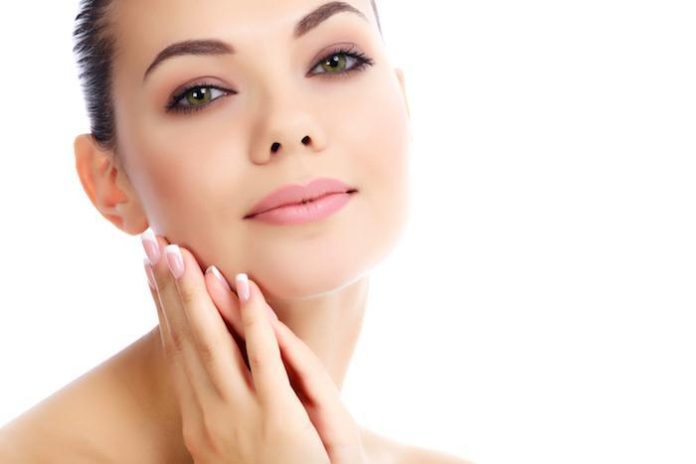There are many benefits to getting older. With age comes wisdom, right? Well, aging can also bring unwanted effects, like wrinkles and fine lines. Luckily, there are ways to combat aging skin that don’t require surgery or spending hundreds of dollars. In this article, we list a few tips to help keep your skin looking youthful. From wearing sunscreen to drinking water, here’s everything you should know:
Table of Contents
1. Consider Anti-Aging Products
While there are hundreds of anti-aging products available, they all have the same goal — to help skin appear younger. As you age, your skin loses elasticity, decreasing its ability to stretch and bounce back. This loss of elasticity leads to prominent nasolabial folds, wrinkles, and fine lines. Other factors can also cause skin aging, like your environment and lifestyle choices, like smoking.
While aging is a natural process, many people want to keep their skin from looking older. Well, that’s where anti-aging products come into play. As mentioned above, there are hundreds of options available, and not every single one will work for you. Everyone’s skin is different, so it may take some trial and error to find what works for you.
With that said, certain ingredients are known to be more effective than others. For instance, retinoids (a term for vitamin A compounds) have long been considered an effective anti-aging treatment. They can reduce wrinkles and fine lines, as well as reverse the effects of sun damage. Vitamin C is another great ingredient because it contains antioxidants that protect your skin from sun damage and reduce fine lines.
2. Protect Your Skin From the Sun
Spending a day sunbathing or hiking can be fun, but it can damage your skin. Too much sun exposure can lead to sunburns, which can cause redness, itchiness, and even pain. And while sunburns fade, they can have lasting damage. Spending too much time in the sun can make your skin less elastic, leading to wrinkles and thinning. In short, the sun can accelerate skin aging.
Now, this doesn’t mean you should avoid the sun at all costs. You just need to make sure you’re protecting yourself when spending time outside. One way to do that is by applying broad-spectrum sunscreen, with an SPF of 30 or higher, at least 15 minutes before going outside. Then, make sure you’re reapplying sunscreen every two hours while you’re outside. Wearing sun-protective clothing, like sunglasses and a wide-brimmed hat, can also help protect your skin.
3. Avoid or Lessen Alcohol Consumption
Chances are, you know there are drawbacks to drinking alcohol. Not only can alcohol cause high blood pressure, heart disease, and digestive issues, but it can also negatively impact your skin.
Have you ever woken up from a night of drinking with a puffy face and pimples? Alcohol dilates the pores of the skin, which can form blackheads and whiteheads. Alcohol is also very dehydrating. If you’re a drinker, you’ve probably noticed how dry and rough your skin feels after a night out, right? When your body metabolizes alcohol, acetaldehyde (a toxic ingredient), is released and causes moisture loss.
It’s important to note, that this doesn’t mean you can’t indulge in the occasional cocktail. There’s nothing wrong with drinking in moderation, if that’s something you’re interested in. To reduce the effects on your skin while drinking, just make sure to also hydrate by drinking water.
4. Don’t Forget to Moisturize
As mentioned above, having dehydrated skin greatly impacts its ability to function correctly. For one, it affects your skin’s process of shedding dead skin cells and replacing them with younger cells. Dehydrated skin can also clog your pores, leading to acne and creating rough skin. In short, dehydrated skin can make you look older.
While drinking water is a great way to hydrate your skin, you also want to make sure you’re using a moisturizer. A high-quality moisturizer creates a protective barrier on your skin, protecting it from the sun’s UV rays and other environmental factors.
Keep in mind that you don’t want to apply just any moisturizer. It’s important that you use one specifically formulated for you, whether you have dry, oily, combination, or sensitive skin. Be sure to read the labels and descriptions to ensure you’re using the right product.
5. Eat a Healthy Diet
What you put in your body impacts everything from how you look to how you feel. Eating a well-balanced diet isn’t just a good way to stay fit and prevent diseases, it’s also good for your skin. People need certain nutrients in order to age well. That’s why eating a healthy diet is so crucial. Make sure your diet consists of healthy proteins, healthy fats, and foods that are high in antioxidants.
Fatty fish like salmon is considered a nutritious food for healthy skin. This is because it contains omega-3, which is known to decrease inflammation, and it also contains antioxidants that promote collagen production. Fruits and vegetables have also been found to help prevent premature aging skin.
While some types of food keep your skin healthy, others can actually do damage. For example, food that’s high in sugar or consists of refined carbohydrates can cause premature aging skin. Again, this doesn’t mean you have to completely avoid these types of food, but make sure you’re eating in moderation.
Aging is a natural process of life, but that doesn’t mean you have to accept the impact it has on your skin. The tips above can help promote clear and younger-looking skin, so you can feel beautiful at any age.
















